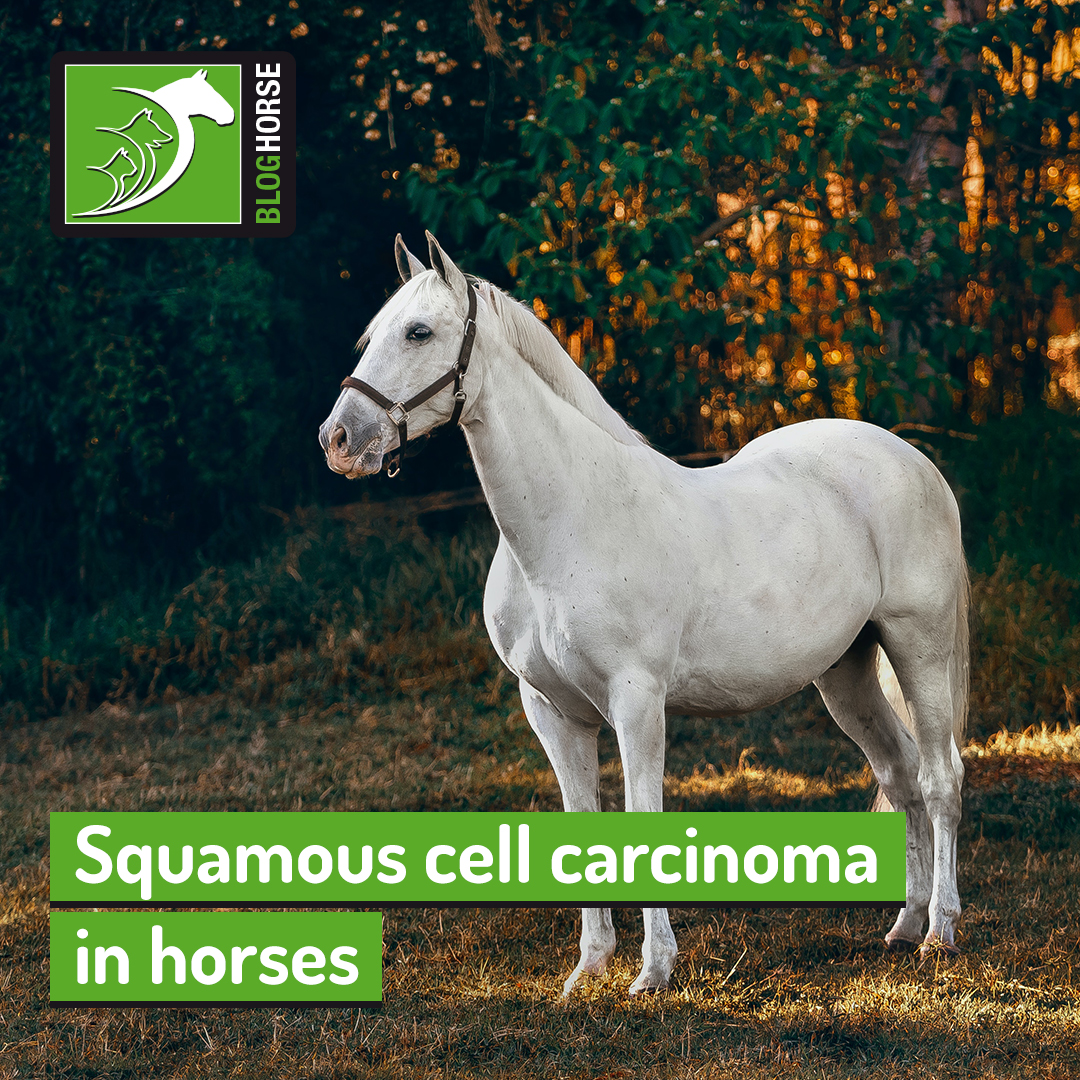
Squamous cell carcinoma in horses

As we've mentioned in our previous blog post, horses are prone to several skin cancers, one of the most common being squamous cell carcinoma.
These tumours appear mainly in the skin, around the eyes, genitals and mouth due to overexposure to the sun and unfortunately they can quickly invade surrounding tissues.
Keep reading for important information about squamous cell carcinoma and how to keep your horses safe from this severe skin problem.
What is a squamous cell carcinoma?
Squamous cell carcinoma is a type of malignant skin cancer that is the second most common type of equine cancer.
While many cases do not have an apparent cause, we do know that exposure to UV rays from the sun is a significant risk factor. Due to this, horses with white coats or light hair around the eyes and mouth are at a higher risk of developing this form of cancer.
When these tumours arise, they are likely to invade the surrounding tissues and cause severe damage, which is especially important when they show up on the eyelids. Fortunately, they do not tend to spread to far away organs, but they can still be challenging to treat.
How can I help my horses?
As with all types of cancer, the sooner squamous cell carcinoma is diagnosed, the better, so inspecting your horses regularly will help you spot any lesions early.
For horses at a higher risk, such as light-coloured horses or the more susceptible breeds such as Belgian, Haflingers or Holsteiners, it's essential to:
- Use protective eye coverings that block UV rays during the times they are out in the sun;
- Limit their sun exposure and avoid the hours that are the most dangerous;
- Pay close attention to any changes of colour in the skin or unexplained growths, especially on the eyelids, genitals and mouth.
Once detected, several treatment options exist, such as surgery, cryotherapy or radiation therapy.
Your vet will evaluate the type of carcinoma and its location and decide on the best course of action to ensure your horse gets an effective treatment with the least amount of side effects.
If you're unsure about a lesion on your horse's body, don't hesitate to contact your vet! Getting a proper diagnosis as early as possible is crucial for successful treatment and remission.
Would you like to know more about horses? Check our Equine Courses:
Equine courses
Published: 04 Aug 2022
Read the previous article: What are sarcoids?

